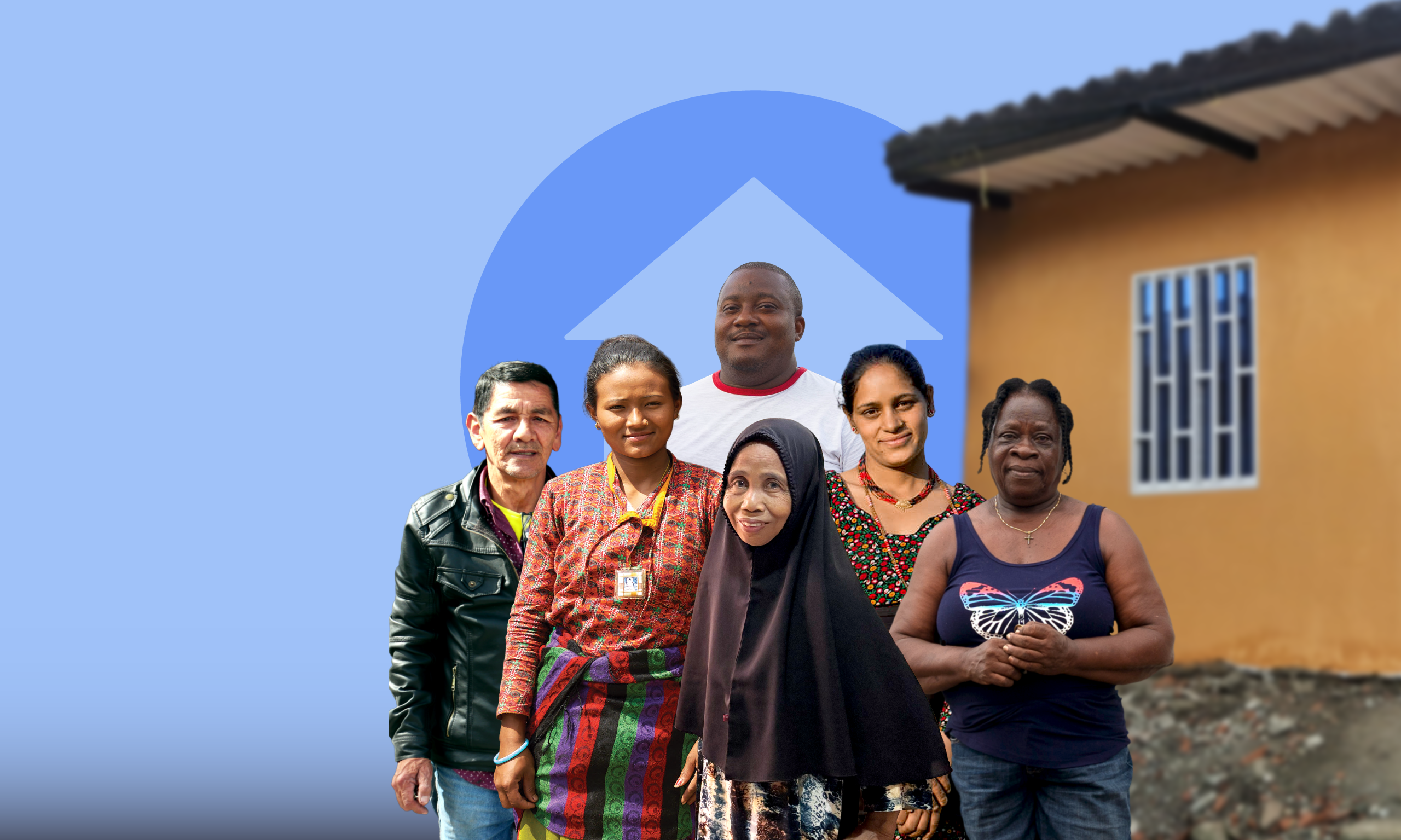
Protecting Lives and Livelihoods Worldwide
We are a global leader in systems
change for resilient housing.
Make a difference, join us
Governments
Your country. Your people. Your solution.- Get started today
Partners
Housing needs partner support more than ever.- Join our mission
Donors
Housing is the ultimate protection for families, make a difference now.- Donate now
Implementers
Gain the tools to deploy housing programs at scale.- Get Resources
Our Team
Work with us, change the world.- See open positions
Data is current as of March 31, 2025.
Resilient Housing through collaborative action
- Underlying our work is the desire to have a positive and lasting impact by changing housing systems. To do this, we promote a program model that is both economically and socially sustainable. The Build Change model for resilient housing centers on the following:
Testimonials
My home used to be hot and dark; with better ventilation and daylight, it now feels much cooler.
After the flood, we used our new second floor to stay safe here and to sleep, because downstairs there was a lot of humidity

The Climate Resilient Housing Initiative, powered by Build Change, is a Race to Resilience initiative engaging decision-makers and homeowners across the housing value chain to build climate resilience.
The Build Change technical assistance platform, BCtap, is an end-to-end solution that pairs technology with subject matter expertise to take resilient housing programs to scale.
Support resilient housing worldwide
Join us in preventing housing loss caused by disasters.
Donate nowNewsletter
Sign up for our newsletter to receive updates on our latest news, events, and more.